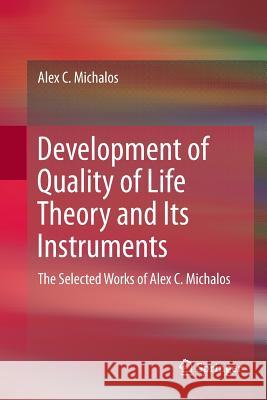Development of Quality of Life Theory and Its Instruments: The Selected Works of Alex. C. Michalos » książka
topmenu
Development of Quality of Life Theory and Its Instruments: The Selected Works of Alex. C. Michalos
ISBN-13: 9783319845807 / Angielski / Miękka / 2018 / 353 str.
Development of Quality of Life Theory and Its Instruments: The Selected Works of Alex. C. Michalos
ISBN-13: 9783319845807 / Angielski / Miękka / 2018 / 353 str.
cena 200,77
(netto: 191,21 VAT: 5%)
Najniższa cena z 30 dni: 192,74
(netto: 191,21 VAT: 5%)
Najniższa cena z 30 dni: 192,74
Termin realizacji zamówienia:
ok. 22 dni roboczych
Dostawa w 2026 r.
ok. 22 dni roboczych
Dostawa w 2026 r.
Darmowa dostawa!
Kategorie:
Kategorie BISAC:
Wydawca:
Springer
Język:
Angielski
ISBN-13:
9783319845807
Rok wydania:
2018
Wydanie:
Softcover Repri
Ilość stron:
353
Waga:
0.54 kg
Wymiary:
23.39 x 15.6 x 2.03
Oprawa:
Miękka
Wolumenów:
01
Dodatkowe informacje:
Wydanie ilustrowane











